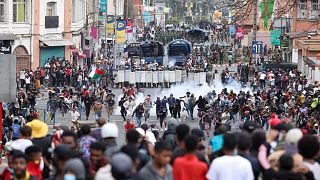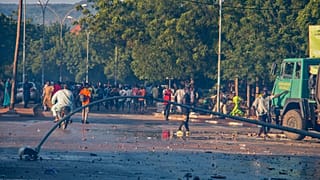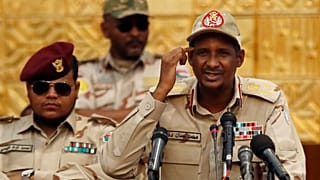Madagascar
For a third consecutive week, Madagascar’s capital was rocked by violent clashes as roughly 1,000 demonstrators, largely masked and mobilizing under the "Gen Z Madagascar" banner, confronted police who used tear gas and stun grenades to disperse crowds. The sustained unrest marks the most significant challenge to the government in years.
The protests were initially sparked by widespread water and electricity shortages but have rapidly expanded into a broader movement against alleged government corruption and nepotism.
Despite the escalating crisis, which the UN reports has left 22 dead, protesters have rejected dialogue, underscoring their deepening distrust of the administration.
A government shakeup fails to quell anger
In a direct response to the pressure, President Andry Rajoelina dismissed his entire cabinet.
However, the move has failed to pacify the youth-led movement, which is now unequivocally demanding the president's own resignation.
Their refusal to attend talks with him on Wednesday signals a hardened stance and a clear rejection of symbolic concessions.
A Nation’s history of turmoil resonates
The protests draw inspiration from successful youth-led uprisings in Nepal and Sri Lanka, gaining momentum online and adopting symbols like the pirate skull seen globally.
This new wave of activism unfolds in a nation with a history of political upheaval, where extreme poverty affects 80% of the population, creating a fertile ground for demands for systemic change.











02:30
Opposition leader's call for shutdown already observed in northern city
00:58
Tanzania unrest deepens as opposition alleges fraud and protests enter third day
00:51
Cameroon opposition leader Tchiroma calls for 3 days of 'ghost town' protests
01:12
Unrest in Cameroon after court declares Biya election winner
02:23
Tensions mount in Cameroon as Biya secures eighth term amid disputed results
01:16
Madagascar's military-led government names mostly civilian cabinet